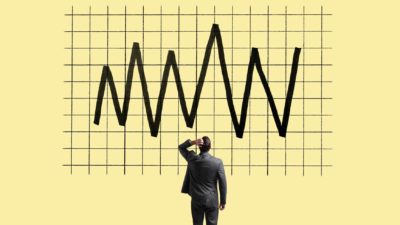Well, I'm back from Tamworth.
(What? You didn't know I was there? You really should read more of my articles!)
For those not in the know, I headed up for 4 days with my young bloke for the Tamworth Country Music Festival.
And if you get the chance, please go and see Troy Cassar-Daley, The Bushwackers, John Williamson, and Colin Buchanan in concert. They were all fantastic, and highly recommended.
You know, there's something about these sorts of events. The vibe was warm and friendly. Everyone is there to have a good time. There were plenty of coppers about, but I didn't see a single issue.
It was just a great time.
Now, I could bang on (justifiably) about the beauty of our country, and (again) recommend you check it out as soon as you can, if and when you can.
And I do want to say thanks to those people who came up to say g'day, including Greg from Toyota, and Graham (aka Mr. Elvis).
But this isn't about me.
It's about some investing thoughts I had while I was away. They're loosely related, but each stands alone.
First, I was reminded of the power of community and of 'fans'. Not just for music, and not just country music. But for artists and businesses in general. If a business can create not just 'users' or 'consumers', but 'fans', they're off to a very good start. And not just a good start, but a very good chance of continued business.
Greg said he loved working at Toyota, because the product was just so good, and that people in the country loved their Toyotas. (I agreed – we have a Prado and a Hilux!)
Most of the fans at the concerts I went to weren't at their first Troy/John/Bushwackers/Colin concert. They knew the music, they'd seen the artists before, and they were back again.
See, fans aren't just fans. They're usually repeat customers.
Tesla knows all about fandom. So does Apple. And RM Williams. And Toyota.
That's the beauty of fans. Customers buy once. Maybe twice. But with fans, you've usually got repeat customers. Potentially for years.
Next, the value of what some people call 'discretionary effort'.
While I was at the Wallabadah coffee shop ('Best Coffee outside of Italy' apparently!), a group was discussing some plans they had for their community. I didn't want to eavesdrop, so I didn't hang around, but I could hear them discussing a plan for some sort of event or promotion.
Sure, this group might have been businesspeople who'd benefit from more exposure, or more people in town, but they were also trying to help the rest of the town. That's 'discretionary effort'.
In a business, it's the extra effort that employees put in over and above the bare minimum required.
No, I'm not talking about exploitation – I'm talking about the extra effort that people make, usually when they believe in the mission or purpose of a company.
When they want their business to be successful, because they see the benefit for all parties.
I've worked in businesses with and without it, and while it's not a guarantee, it's a good indicator of potential business success.
The last thing that struck me while I was away was when my young bloke and I were discussing hotel room prices.
We had to shift hotels because he wanted to stay an extra day, and the one we were in was booked out.
Now, he's 10, so I saved some of the detailed pricing lessons for another time, but he was interested in how and why different hotels charged different prices.
He gets the general relationship between price and quality, so he gathered that the 'nicer' hotels – in his world, they're the ones with swimming pools! – charged more than the others.
And I explained that sometimes, like during the Country Music Festival, all of the hotels were full, but they weren't full all year round.
And that was enough, for him, for now at least.
But it reminded me of the importance of really understanding a business' economic model, especially when investing.
What costs are truly fixed? Which are fixed in the short-term, but can be flexed? And which costs are variable?
Having an understanding of those relationships can be really helpful, particularly when you're thinking about cyclical businesses or those with fickle customer bases.
Which businesses will suffer during recessions? Which will be resilient?
When does a sales downturn become uncomfortable, and when does it threaten a company's very viability?
And, for investors, how do you think about the right price to pay for those companies?
Now, there's much more to investing than these three observations.
But, if you can put them together, and answer those questions with a degree of evidence-based confidence, I reckon you're probably a decent way down the road.
A company with fans. Whose employees believe in the mission. And for which you understand the economic drivers and the impact on the bottom line.
If I was looking for a way to create a shortlist of potential investments, I reckon that's a pretty good filter.
And seriously, get out into the regions. You'll be glad you did.
Fool on!









